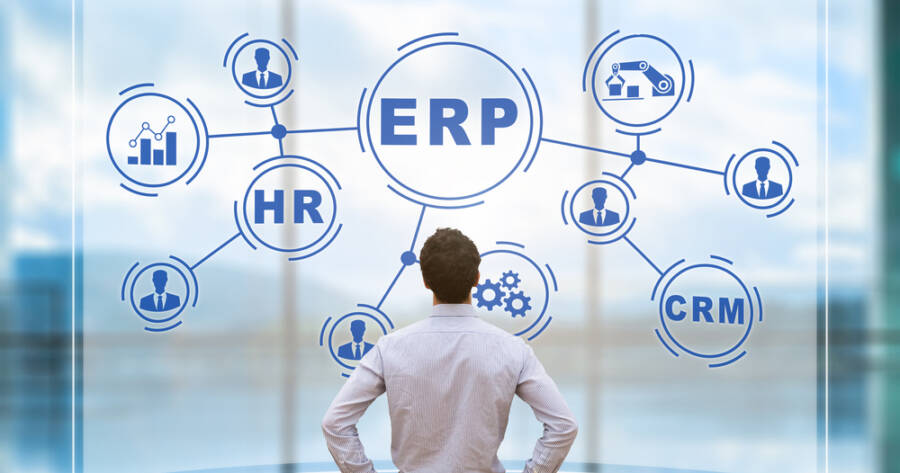Enterprise Resource Planning (ERP) systems are integral to modern business operations, offering unified platforms that enhance efficiency and communication. From on-premise to cloud-based solutions, modern solutions provide scalable and secure data management. ERP systems drive productivity through real-time data, AI-driven insights, and integration across business processes, empowering organizations to adapt and thrive in dynamic market environments.
Understanding Enterprise Resource Planning Solutions
Enterprise Resource Planning (ERP) software plays a pivotal role in modern business operations by integrating essential business processes into a unified platform. This integration facilitates improved efficiency and communication across departments by synchronizing work processes and offering real-time data reporting. Such capabilities enable informed decision-making and increased productivity.
The evolution of ERP systems has broadened access to these benefits with the advent of web-based platforms that allow remote access and seamless data management. Furthermore, cloud-based ERPs provide significant advantages such as scalability, security, and flexibility, driving operational performance and allowing businesses to respond swiftly to market shifts.
Types of ERP Systems
ERP systems come in various formats to cater to different business needs and environments. These include on-premise, cloud, industry-specific, open-source, small business, and tiered ERPs, each offering unique features and capabilities that enhance operational efficiency. For instance, Infor ERP solutions provide industry-specific capabilities that deliver fast time to value without the need for expensive customization.
The choice of deployment—whether cloud, on-premise, or hybrid—depends on the level of control, operational requirements, and cost considerations. Companies must also consider the pricing models, as these can vary widely from user-based to module-based and usage-based models, affecting the total cost of ownership.
Key Features of ERP Systems
Modern ERP systems are equipped with features that enhance business functions such as finance, supply chain, human resources, and manufacturing by centralizing operations on a single platform. Real-time data processing is a crucial feature, enabling quick and informed decisions alongside reporting and analytics for performance tracking and data visualization that simplifies complex information.
The integration of AI and machine learning within ERP systems is also transforming how businesses operate, providing predictive capabilities, personalized user experiences, and advanced decision-making tools. This integration is crucial for enhancing efficiency and adaptability in a dynamic business environment by facilitating advanced data analysis and process improvement.
Benefits of Implementing ERP Systems
Implementing an ERP system comes with numerous benefits, including cost savings through streamlined processes, reduced IT costs and better resource management. By automating routine tasks and facilitating cross-departmental collaboration, ERP systems significantly enhance productivity and reduce redundancies.
Furthermore, ERP systems support regulatory compliance and provide organizations with the agility and data-driven insights necessary to stay competitive in today’s market by aligning operations with strategic goals. An example includes the use of AI tools to ensure compliance and manage risks effectively.
Challenges and Considerations
Despite the significant benefits ERP systems offer, successful implementation requires careful planning and change management. Companies must assess their specific business needs, set clear goals, and choose the right ERP solution while building a cross-functional team for implementation. Comprehensive training and support are crucial to ensure a smooth transition and effective use of the ERP system.
Additionally, selecting an ERP solution involves evaluating factors like scalability, customization, integration capabilities, and user experience to ensure compatibility and efficiency. As such, a structured approach—including assessing current systems, migrating data, and testing—helps mitigate risks during implementation.
Learn More About ERP Solutions
Enterprise resource planning solutions continue to evolve, providing businesses with tools to enhance efficiency, improve decision-making, and maintain competitiveness. By integrating various business functions and offering advanced features such as real-time analytics and AI innovations, ERP systems position organizations for success in a rapidly changing market environment.
As demand for ERP solutions rises, companies that adopt these systems can greatly benefit from increased operational efficiency, reduced costs, and enhanced agility. Understanding and implementing the right ERP solutions can empower businesses to innovate and grow sustainably.

